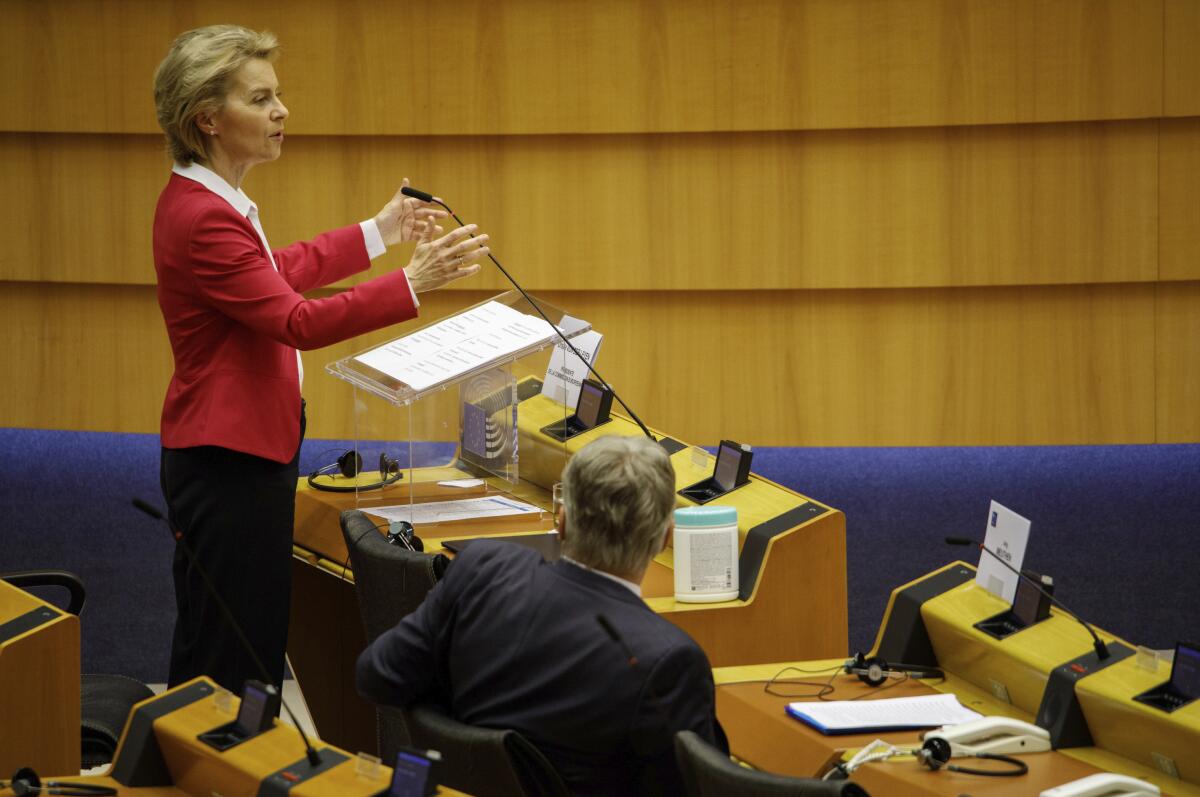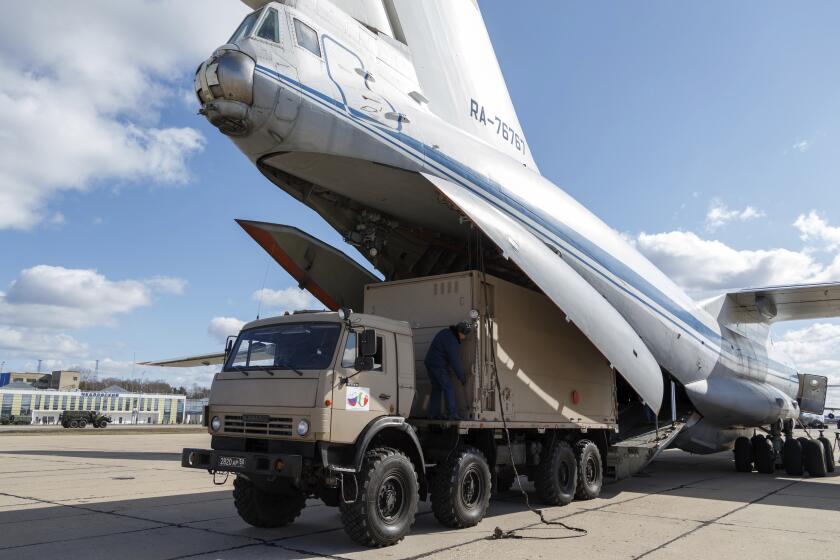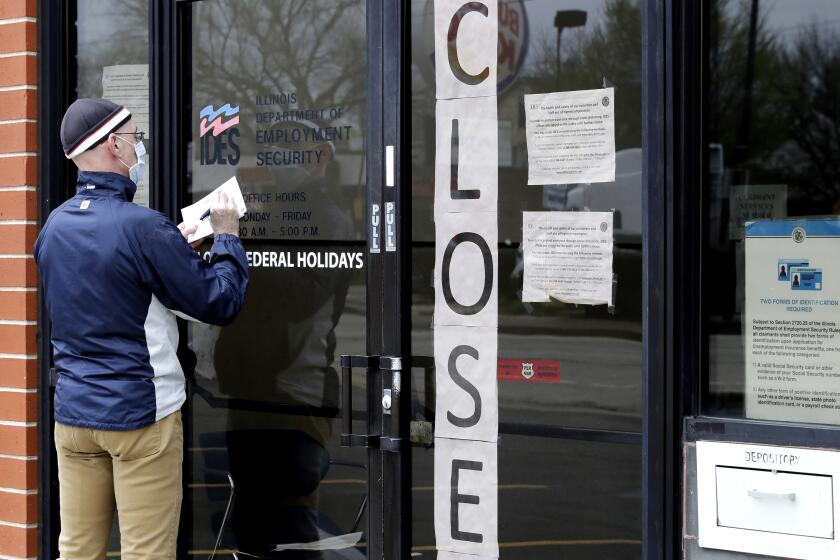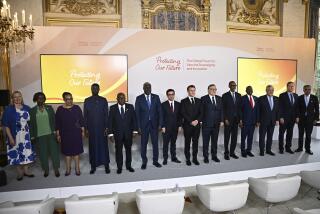EU proposes 750-billion-euro coronavirus recovery fund

- Share via
BRUSSELS — The European Union on Wednesday proposed a 750-billion-euro ($825 billion) recovery fund to help countries weather a painful recession triggered by the coronavirus crisis and bridge divisions over what kinds of conditions should be attached to access to the money.
Unveiling the package to EU lawmakers, European Commission President Ursula von der Leyen said: “This is Europe’s moment. Our willingness to act must live up to the challenges we are all facing.” She said that the fund, dubbed Next Generation EU, is “providing an ambitious answer.”
Two-thirds of the money would take the form of flat-out grants, which many EU countries want, while the rest would be made up of more conditional loans, which some other bloc members advocate.
Italy and Spain — which have the highest COVID-19 death tolls in continental Europe — would each be eligible for about 80 billion euros in grants. France and Poland would have access to around 38 billion euros, while Germany could get 28 billion euros.
The grants will not just be handed over. Countries would have to apply, setting out their aims for the money and what reforms they plan to undertake to ensure their economies are more resilient in the future. The applications must be endorsed by the EU partners.
Italy, Spain and Poland would also be eligible for additional tens of billions in loans, but the conditions for securing those funds are more onerous.
Solidarity among nations battling the coronavirus pandemic is tested by desperation for masks, gowns, respirators and other medical supplies.
The 27-nation EU remains deeply divided over what conditions should be attached to the funds, and the commission proposal is likely to set off weeks of wrangling. All 27 member countries must agree for the recovery fund to take effect.
The move comes as the world’s biggest trading bloc enters its deepest-ever recession, weighed down by the impact of the coronavirus. Virtually every country has broken the EU’s deficit limit as they’ve spent to keep healthcare systems, businesses and jobs alive.
While citizens across Europe are slowly returning to work and students move gradually offline and head back to classrooms, hard-hit countries like Italy and Spain remain in desperate need of funds and want to avoid any protracted in-fighting within the EU.
Earlier this month, the leaders of Germany and France — historically, the two main drivers of EU integration — agreed on a onetime 500 billion-euro ($543 billion) fund, a proposal that would add further cash to an arsenal of financial measures the bloc is deploying to cope with the economic fallout.
In economic downturns, Europe depends on existing programs to pump money into people’s pockets, while the U.S. relies on Congress to pass stimulus programs.
That plan envisaged the EU borrowing money in financial markets — an unprecedented move by the commission — to help sectors and countries that are particularly affected by the pandemic.
The EU’s blueprint resembles the Franco-German plan in many ways while attaching the fund to the EU’s next long-term budget.
Austria, Denmark, the Netherlands and Sweden — a group of countries dubbed the “Frugal Four” for their budgetary rectitude — are reluctant to see money given away without any strings attached, and their opposition to grants could hold up the project.
“If it will be grants, who [is] going to pay the grants? Loans, I think, is a more interesting way forward to discuss, but we also have to discuss under what conditions shall we give these loans,” Swedish Finance Minister Magdalena Andersson said Tuesday.
The commission’s plan is likely to spark heated debate, and the EU does not have time for the dispute to drag on. The new budget period begins on Jan. 1, and countries across the bloc are desperate for funds now.
More to Read
Sign up for Essential California
The most important California stories and recommendations in your inbox every morning.
You may occasionally receive promotional content from the Los Angeles Times.












